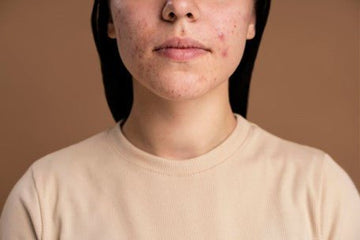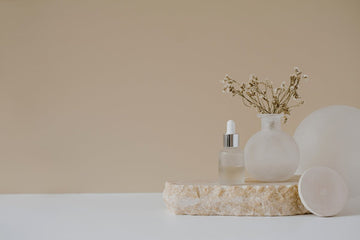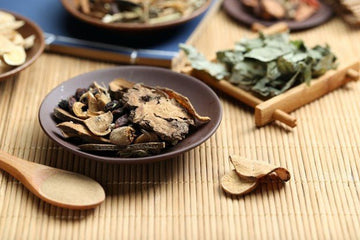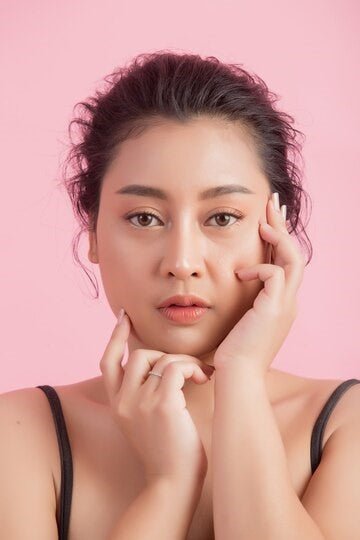We like to tell ourselves age is just a number, but as we get older, it’s hard to ignore the dewy glowing skin of the youth. Over the years, skin loses its elasticity, shows the effects of sun damage, and generally starts to look more tired even though we think we’re getting enough sleep. Now, with better knowledge on how to take care of ourselves, and our skin, we can prevent and even return our skin back to a natural-looking youthful glow. We break down the main steps to achieve this, from skincare products to lifestyle choices.
Revitalise your Skin with an Anti-Aging Skincare Routine

There are endless skincare products that target anti-aging concerns. Knowing which ones to pick out is the key to success. Opting for natural skincare products is the first step. Skincare products can contain harsh chemicals that actually speed up the signs of aging. Using natural skincare ingredients avoids that risk, and you know you’re putting things on your skin that are naturally good for it. With natural skincare products on the rise, that still leaves a lot of choices. To make things easier, we put together a list of our top natural skincare ingredients to include in any skincare routine.
Antioxidants
Vitamin C
The most powerful anti-aging antioxidant is considered to be vitamin C, also known as L-Ascorbic acid (look for this on product labels). The reason it rates highly as an anti-aging antioxidant is that it both protects and actively repairs the skin. So if your skin is already showing signs of sun damage, fine lines, and wrinkles, applying vitamin C can fix these concerns and help to keep them at bay. Another skin concern as we get older is the loss of skin elasticity. Vitamin C stimulates collagen production, which is necessary to maintain skin elasticity, leaving you with plumper and firmer-looking skin.
Niacinamide
This is considered a good alternative to vitamin C for people with more sensitive skin. It is a water-soluble vitamin that works well with the natural substances found in the skin. It improves overall skin texture by visibly minimising and tightening pores and diminishing dullness. It works in the same way as vitamin C in helping to repair damaged skin cells, and it works towards strengthening the skin’s barrier over time.
Vitamin E
Added to many skincare products, but found naturally in Jojoba oil, vitamin E is able to penetrate deep into the skin. Historically jojoba oil was used to treat wounds, mainly due to the healing properties of vitamin E. With time, applying vitamin E to the skin helps to reduce the appearance of scars and marks, making your skin look smooth and healthy. It also acts as an anti-inflammatory, allowing it to prevent damage after UV exposure.
Vitamin A
Often found in the form of retinol, vitamin A helps to boost the skin’s immune system, speeding up healing and preventing breakouts. Over time it reduces the appearance of wrinkles and sun damage, making it an effective anti-aging ingredient. It also works as a skin hydrator, which plays an important role in giving the skin a radiant glow.
Hydrators
Hyaluronic Acid
Our skin contains natural levels of hyaluronic acid that deplete as we age, leading to dryness, wrinkles, and age spots. Using skincare products with hyaluronic acid in not only helps to replenish the skin, but it also builds a barrier to lock in moisture and helps skin heal quicker.
Coconut Oil
Arguably one of nature’s best moisturisers and anti-aging ingredients. Coconut oil is made up of saturated fats that improve the skin’s barrier and help to provide and maintain moisture levels. Because it is so moisturising, it’s not recommended for people with very oily skin as it can lead to blocked pores. Using it in a skincare product that contains other ingredients can help prevent this.
Peptides
Skin needs collagen to maintain its youthful plumpness. Peptides are hydrating amino acids that help to promote the production of collagen, leading to firmer, younger-looking skin. It pairs well with hyaluronic acid to build a strong and healthy skin barrier to keep the skin looking young. They also help the skin to retain moisture which leads to dewy glowing skin.
SPF
An absolute must in winning the war against anti-aging, an SPF of at least 30 should be the last skincare product you use in your daily routine. Exposure to UV rays breaks down collagen and elastin in the deeper layers of the skin. Sun exposure over time leads to uneven skin tone, fine lines and wrinkles, and loss of elasticity. This is the reason why sun damage is considered to be the main culprit of premature skin aging.
Using these anti-aging ingredients in your daily skincare routine will reveal a complexion that looks radiant and renewed. If you want to maintain this throughout the years, try following some of these lifestyle tips:
-
Stay out of the sun – while it’s impossible to avoid the sun altogether, try to stay out of the sun when it’s at its strongest during the middle of the day. If you have to stay outside for long periods of time, use a strong SPF and reapply every couple of hours.
-
Stay hydrated – water is the most ideal drink to stay hydrated with, but lemon water, green tea, and turmeric drinks contain antioxidants that are beneficial for skin health.
-
Get good sleep – aim to get around 7 hours of sleep each night, and try to avoid using screens just before bed to promote good deep sleep.
-
Eat a healthy, well-balanced diet – a diet full of natural foods is ultimately the best for our bodies. Antioxidant-rich foods such as leafy greens, and vitamin C-rich foods like citrus fruits will also help to feed our skin.
-
Limited alcohol and caffeine – there is a lot of debate over whether alcohol, particularly that glass of red wine, is good for us or not. The best thing to do is to have these things in moderation.
-
Don’t smoke – this one is a definite avoid. Smoking deprives the skin of oxygen and nutrients, and chemicals in cigarettes contribute to premature aging.
-
Cut down on stress – the body responds to stress by releasing cortisol, which increases blood sugar levels. Sugar can actually bind to collagen as it is a protein. This process damages it over time and leads to skin aging.
-
Stay mobile – even just walking 15-30 minutes a day can help give your skin a glowing complexion by increasing blood flow. Exercise has also been shown to improve sleep and mood.
-
Establish a good beauty regime – always remove makeup and cleanse before bed to remove dirt buildup from the day. Leftover makeup can result in aged skin because it has been left to mix with dirt and pollution, preventing it from renewing healthy skin cells as we sleep.
-
Have a facial massage – much like exercising, facial massages increase blood flow leading to improved skin complexion. Directly massaging the skin also helps to increase collagen production and boost elasticity in the skin. Try a daily at-home Gua Sha facial massage or use a jade roller daily and treat yourself to a longer one at a salon once a month.
Using makeup once you have a good base:
-
Use foundation sparingly – only use foundation on problem areas where you need to cover discolouration or redness. Too much foundation can hide the natural radiance of your skin. It’s best to rely mostly on good skincare and use a little sheer foundation for coverage over that.
-
Apply concealer for eye circles – Use concealer after foundation to brighten the under-eye skin tone and avoid dark eye circles. Apply several dots under the eyes and a dot to the inside corner of the eye, then pat with fingers or a flat makeup brush to blend into the face.
-
Keep makeup light – avoid overdoing makeup as this leads to clogged pores and stops your skin from being able to breathe. Too much makeup can also lead to skin irritations, fine lines, and wrinkles.
-
Use gentle makeup remover – take your time when removing makeup, particularly around the eye area. Avoid tugging or pulling the skin as it can increase sagging and irritation.






